Robin Cowley is a San Fancisco Bay Area based textile artist who works with felt, cotton and silk to create her graphical work. Robin’s abstract contemporary quilts use a clever combination of colour and space to great effect. Her inspiration comes from nature, avant grade architecture and the universe.
In our interview with Robin she tells us how art helped her through a difficult childhood and how after losing part of her sight she still creates her wonderful work.
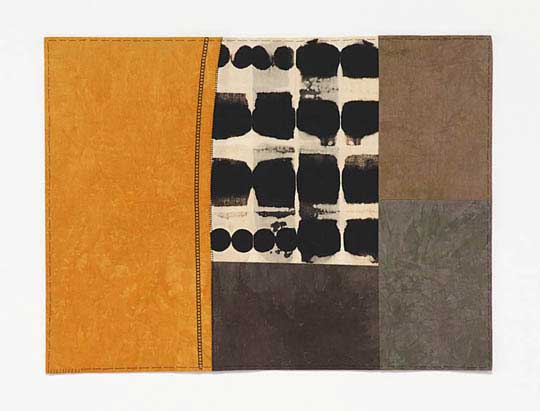
My world changed
What initially captured your imagination about textile art?
I’d always enjoyed fabrics via sewing clothes, curtains, etc. Nothing exceptionally well done, mind you, but none the less… Also, from a very young age I studied and practiced art in the form of oils, watercolor, pencil, charcoal, carving and the like. Eventually the thought came to me “Can I use cloth like paint?” I was somewhat familiar with Amish quilts, so that was in the brain mix. But then I went to an exhibition of something called ‘Art Quilts‘ and my world changed.
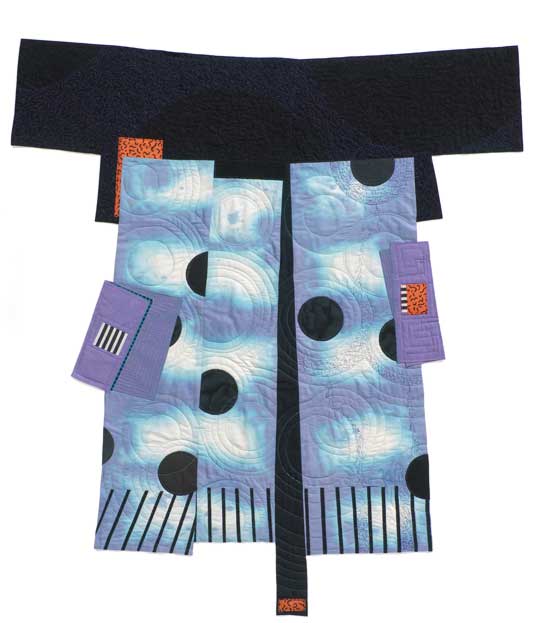
What or who were your early influences and how has your life/upbringing influenced your work?
A difficult childhood led me to escape through my art. Everything faded around me as I concentrated on my pencil drawings. Going to museums, I always gravitated toward avant garde artists with strong colour and line.
What was your route to becoming an artist? (Formal training or another pathway?
Even in grade school, I immersed myself in art. Volunteered for every poster or mural project available to me. Finally, in college I spent years taking all sorts of art classes without benefit of a degree. After a career working in the building design business, I decided to retire and focus on producing and selling textile art and contemporary quilts.
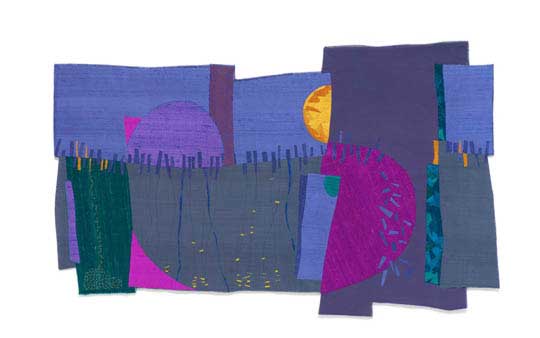
Magnifiers and lights
I work primarily in cloth such as felt, cotton and silk. Needle felting, dyeing, hand- and machine-stitching, ink drawing, painting are all employed in my current endeavours.
How would you describe your work and where do you think it fits within the sphere of contemporary art?
I see my work as strongly graphic and colourful. I think it’s viewed as very simple, yet if one looks more closely it’s obvious there is complexity to the design. Fitting within the sphere of contemporary art is like being a “legend in my own mind” I’m afraid. I don’t see textile art or art quilting as being widely accepted in the “real” art world.
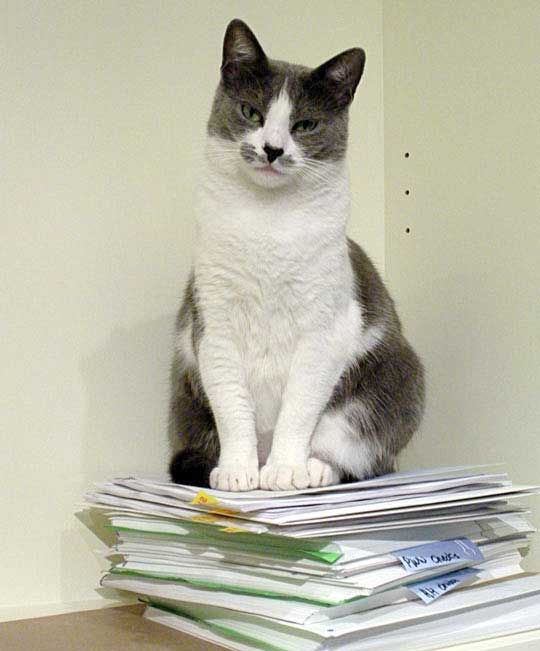
Tell us a bit about your process and what environment you like to work in?
Several years ago I experienced two strokes which killed the head of the optic nerve in each eye. What a disaster for such a visually oriented person! Long story short, I use my limited peripheral vision to work while using many different types of magnifiers and lights. I work in my studio at home with a view out to the garden, and two cats keeping me company. Usually loud music is playing, giving me a rhythm for dancing and cutting fabric. My work had always been very precise and controlled, and my mantra had been “I wish I could work looser.” Ha! Be careful what you wish for.
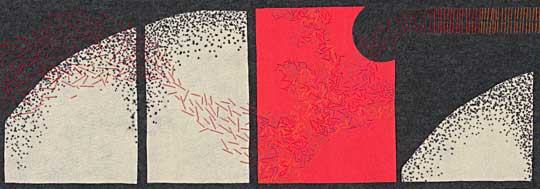
Frame-by-frame
Do you use a sketchbook?
I don’t usually sketch beforehand. I like to cut pieces and put them up on my 8′ x 8′ design wall. That being said, I’m currently working on a series based on videos that I take on my phone. I look at the frame-by-frame layout and sketch what I want the piece to look like.

What currently inspires you and which other artists do you admire and why?
Buildings! I love the lines of buildings in downtowns around the country. I’m always taking pictures of interesting architectural shapes and window reflections. Favorite artists include Wolfe Kahn, Mark Rothko, Jun Kaneko.
Tell us about a piece of work you have fond memories of and why?
‘Mars Multiples’ is a piece I did many years ago. My mother-in-law was visiting us at the time, and somehow she chose to sit in my studio and watch me work. I remember standing at my design wall with pieces of hand-dyed fabric, laying out sections in a grid pattern. I’d put a piece on the wall, stand back to look, then approach to add another piece. In the background I heard “nuh-uh” or “uh-huh.” It’s so funny now to look back on that, but honestly I don’t know how I coped. At any rate, that piece became one of my favorites.
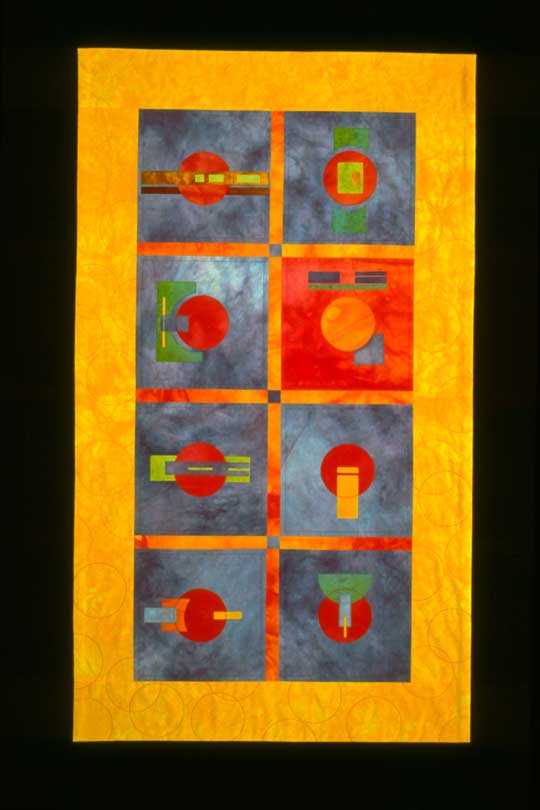
Sense of colour and proportion
How has your work developed since you began and how do you see it evolving in the future?
I have a hard time seeing change and development in my work. I’m sure it’s there, but I couldn’t possibly comment. My hope is that it will develop and evolve to be more sophisticated and more of just what I want rather than worrying about what someone else might think of it.
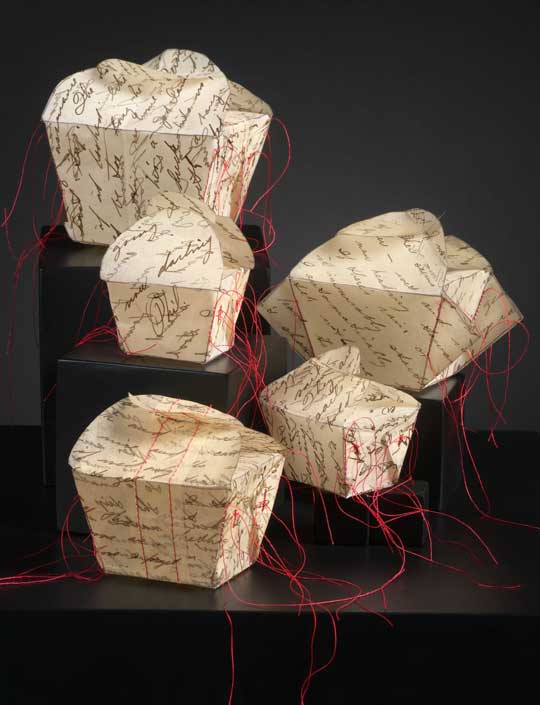
What advice would you give to an aspiring textile artist?
Seriously, it’s NOT all about the art. It’s about marketing – well, if you want to make a living at it. Too many artists think the buyers will beat a path, but that rarely happens.
What other resources do you use? Blogs, websites, magazines etc.
Since I can’t read normal type anymore, I just browse pictures in magazines and books. I often see things that astound me and please my sense of colour and proportion. As noted earlier, architecture is a favorite of mine and has the added benefit of being BIG and easy to see.
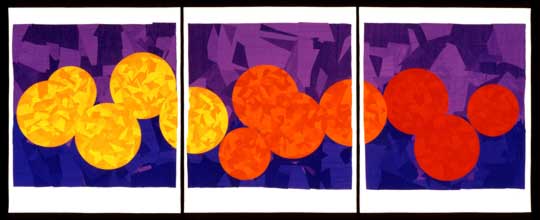
A jeweler’s loupe
What piece of equipment or tool could you not live without?
I wear a jeweler’s loupe to see small things, and couldn’t live without it. Also, my bright lights.
Do you give talks or run workshops or classes? If so where can readers find information about these?
Garden talks, that’s about it.

How do you go about choosing where to show your work?
Generally, I choose a gallery by what it specializes in; then I approach those that I consider to be compatible with my work.
Where can readers see your work this year?
Right here in this article! Studio Art Quilt Associates has a yearly portfolio where my work is usually shown.
For more information please on Robin Cowley visit: robincowley.com
If you’ve enjoyed this interview with Robin let us know by leaving a comment below
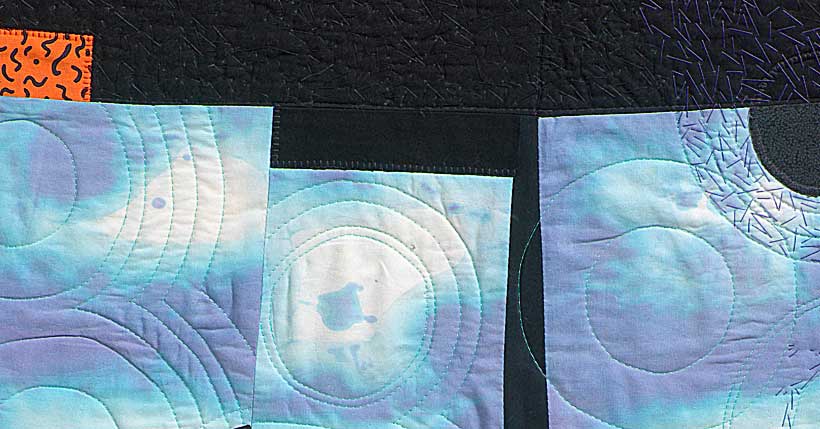
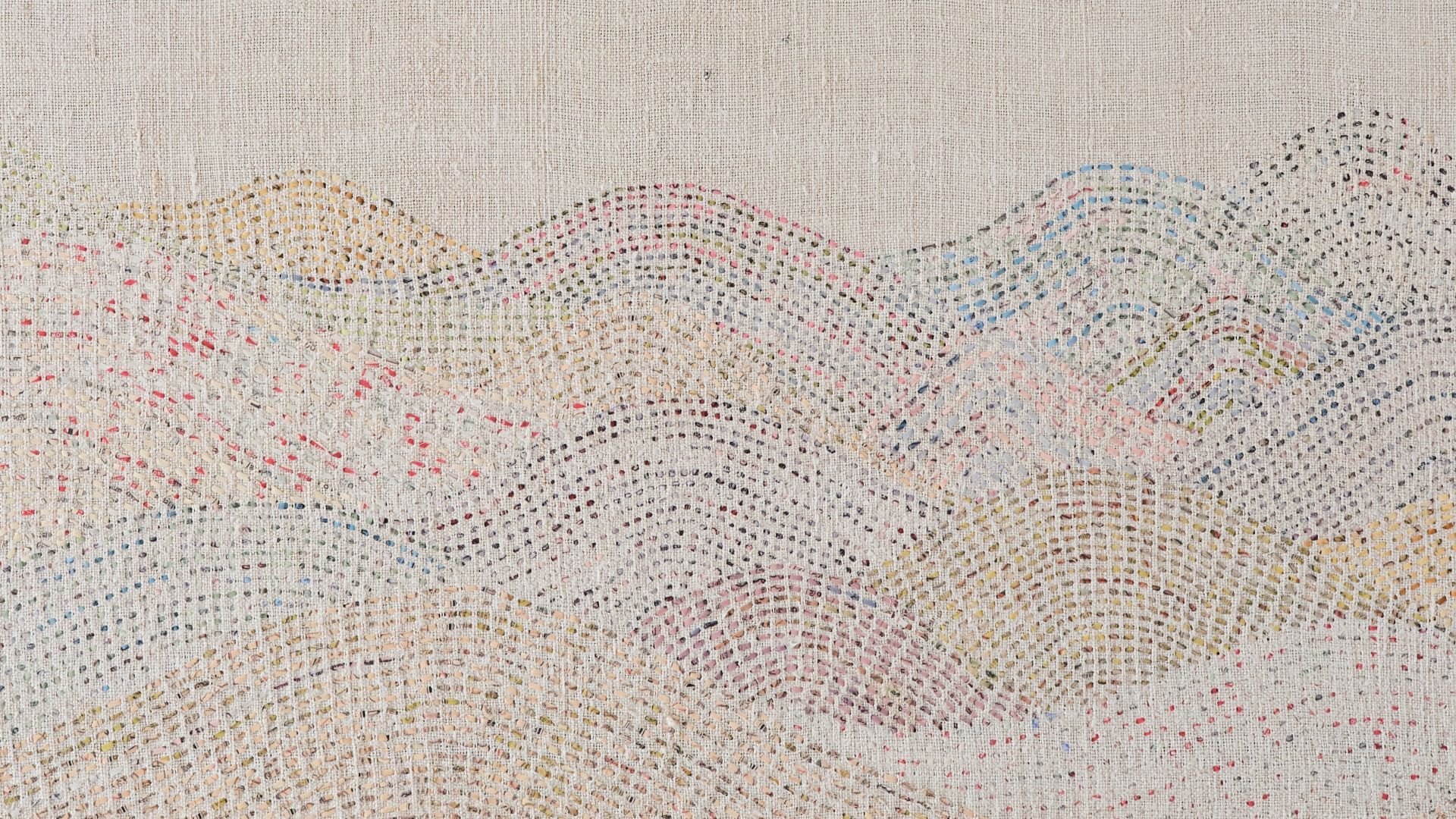
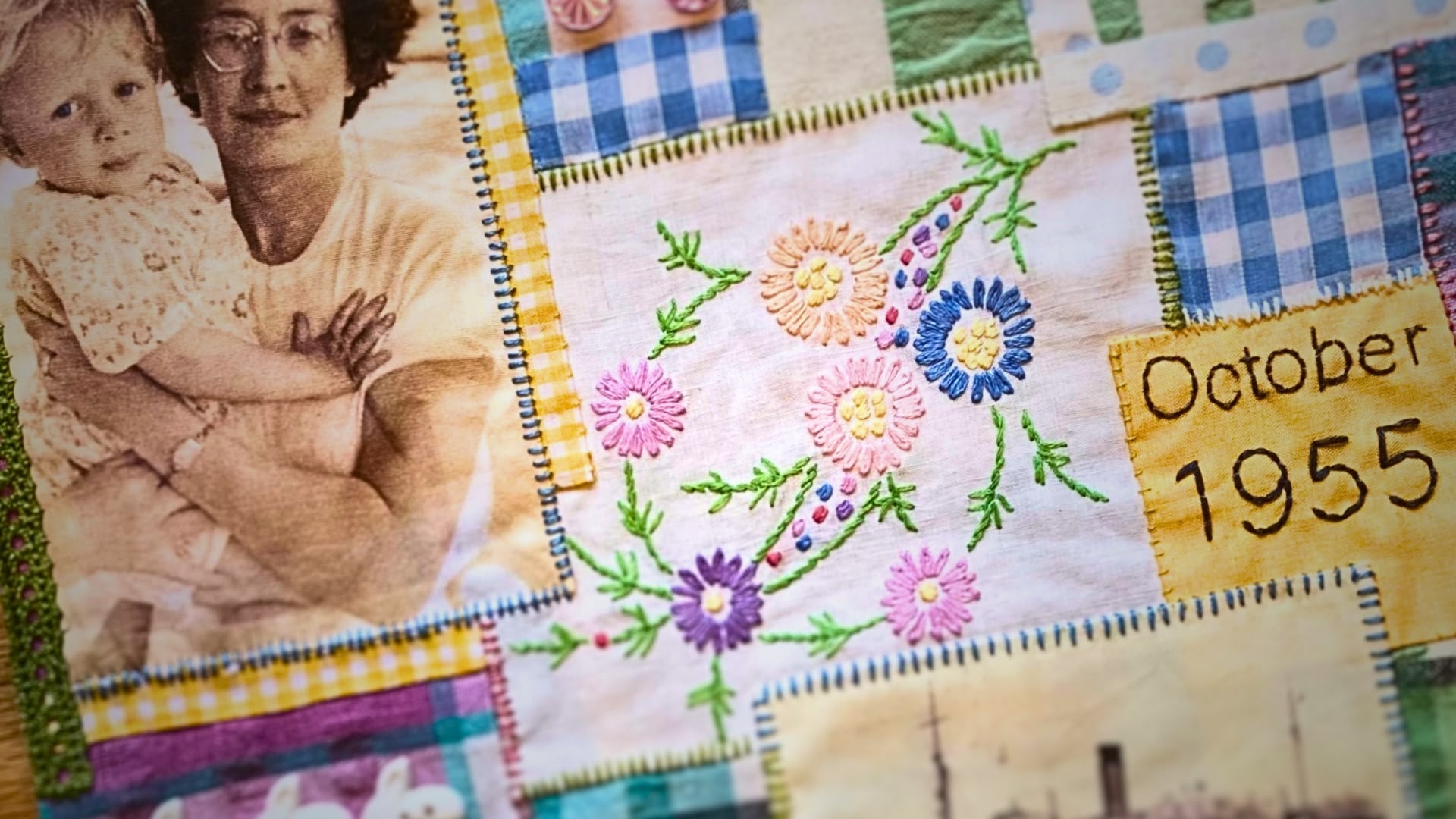
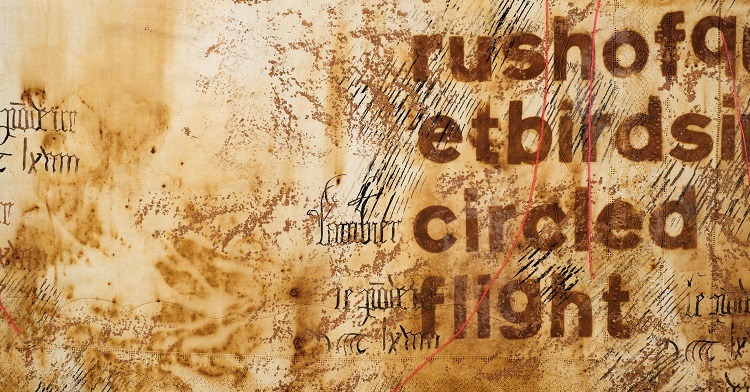
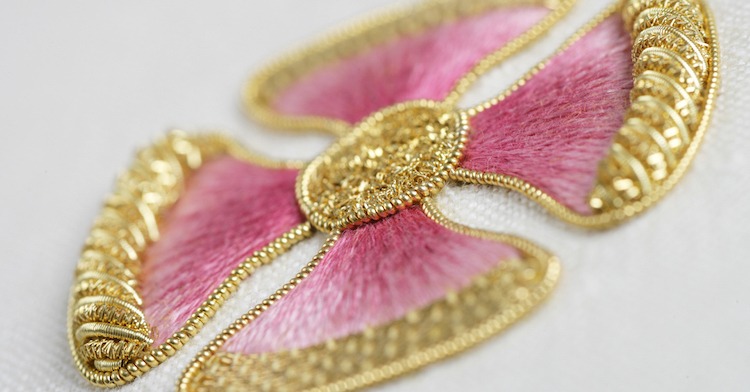
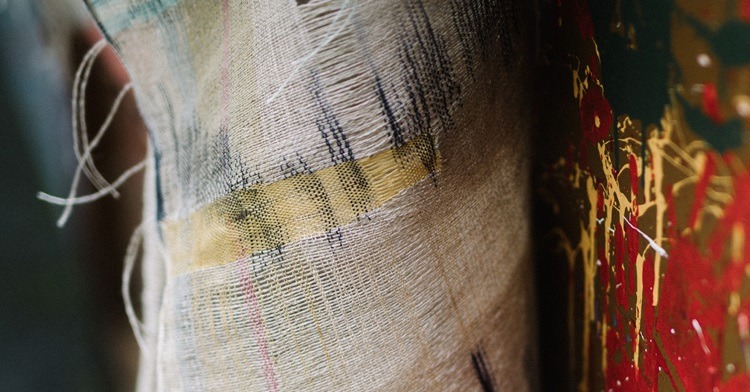
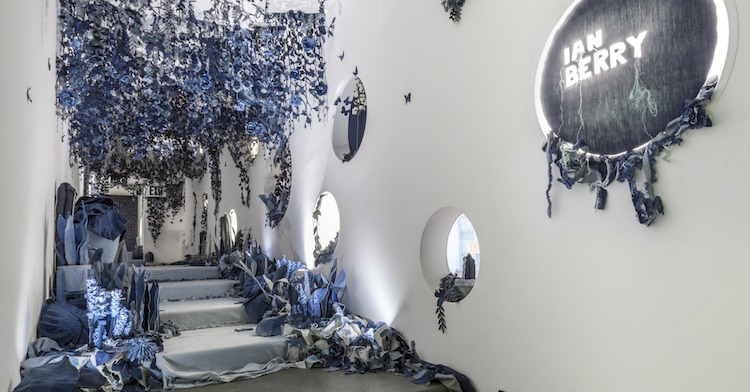
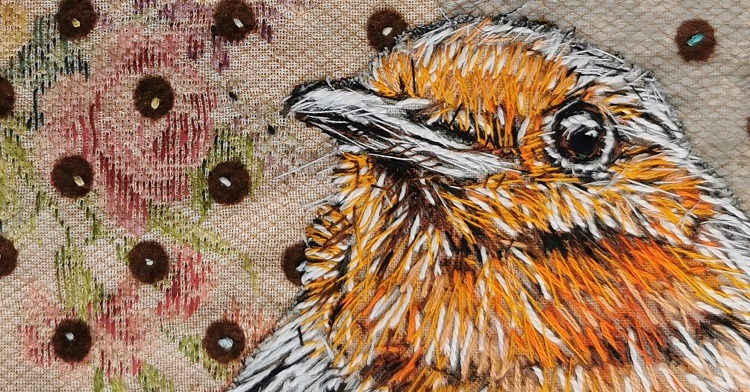
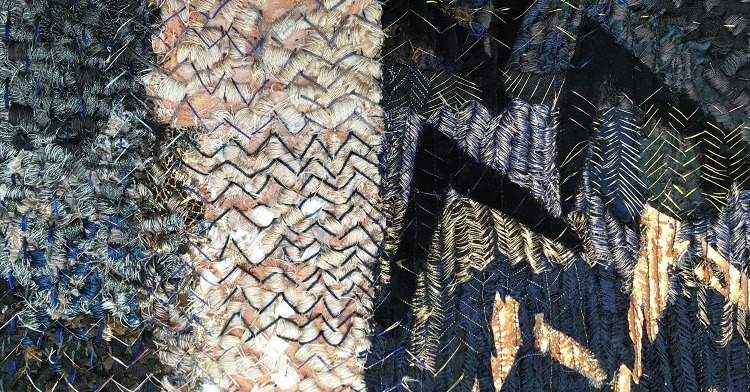
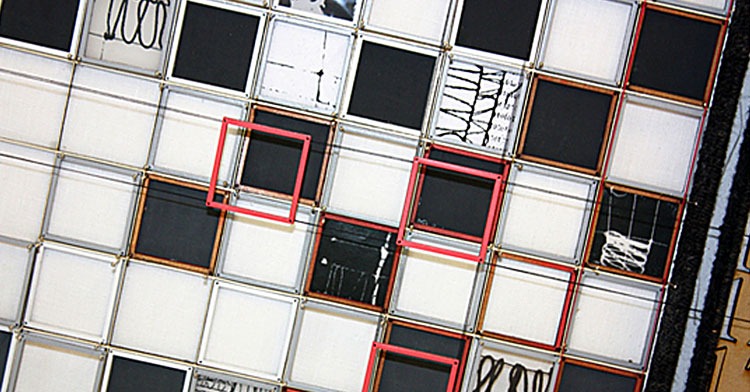
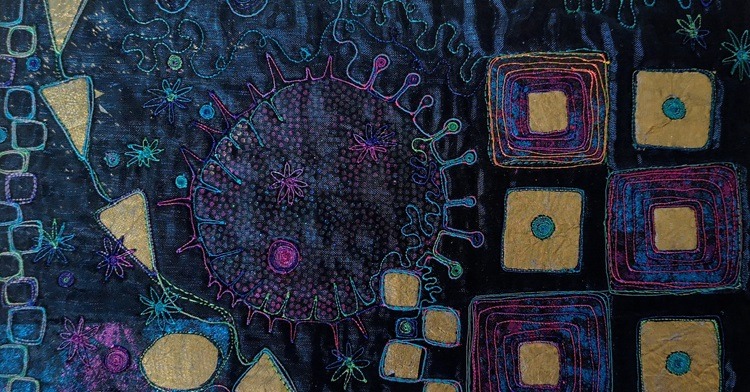
6 comments
Suzanne Manning
This is so encouraging. As someone with my own obstacles, most of which are simply from age, but also balance and vision problems from a fall & head/brain injury– this article reminded me that our desire to create drives us to devise systems to assist us in that goal. (Which, in and of itself, can also be very creative.) That can include enhanced magnification and lighting methods as well as cobbled-together, make-do-with-what’s-on-hand innovations to get us to where want to go with our craft because it brings us so much joy. Thanks for sharing your wonderful work and candid, down-to-earth insights.
Marla Hattabaugh
The graphic images appeal to my sense of design and clear shapes.
Thanks!
Trisha
I too have macular degeneration in the family and am undergoing tests at the eye hospital at the moment as I’ve recently had some visual problems. This is very, very scary, especially for a visual person who has always made things and took the big step to go to art school in her forties. I am much more optimistic after reading Robin’s comments. I wonder too if we are long lost relatives as my maiden name was Cowley!
Christine Pfrang-Armes
You are amazing! I was just about to say how much I loved your Mars piece, and the…page down…unnamed 60 x 30…it’s amazing, I love it!!!
By the way I was behind you up until you turned of to go home…I was on the way to my other cousin’s house! Love to Paul & your Iris & Poppy!
Christine
Mirka
Robin,
I’ve loved your work from afar for a long time. So happy to know you are able to keep creating beautiful and thought-provoking textile art. I appreciate your candor in the interview.
Jeanne
I’ve always admired Robin Crowley’s work. It’s good to know a little bit more about her. Macular degeneration runs in my family, so I’m glad to see that even with vision problems, one can continue to make great art. Thank you for another interesting interview!